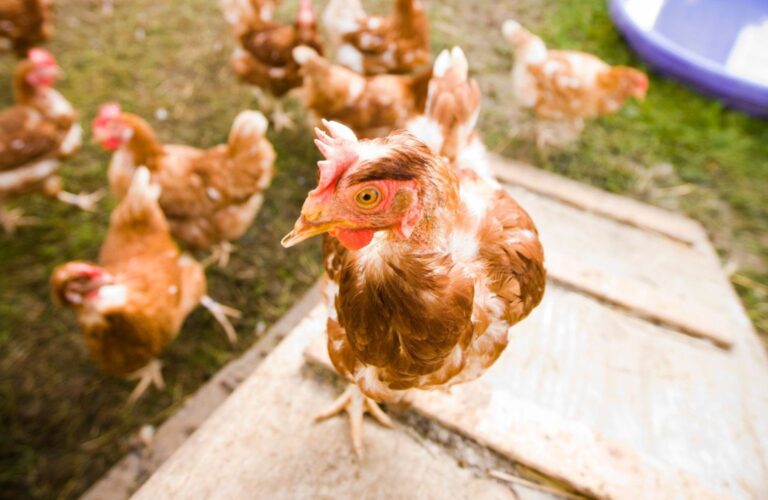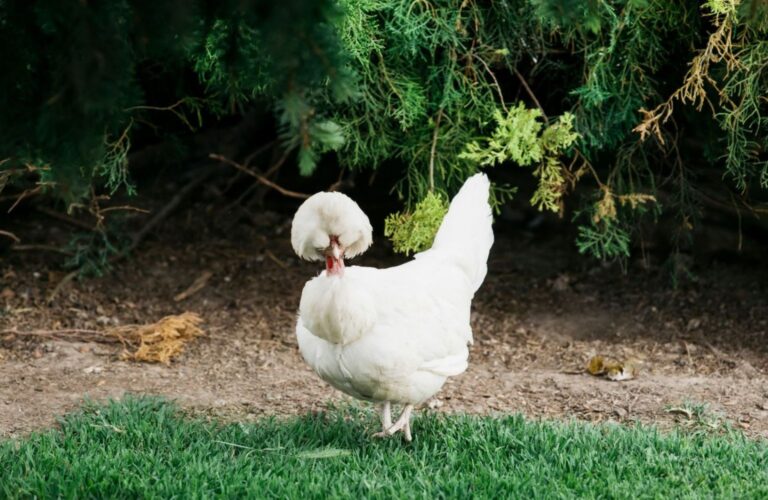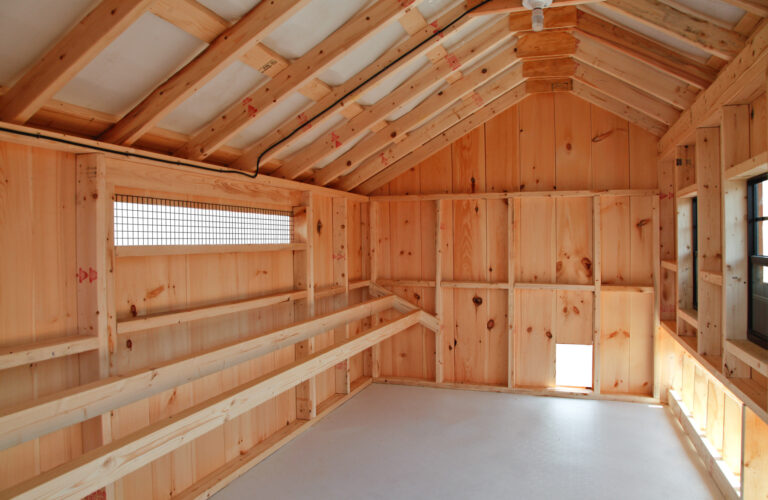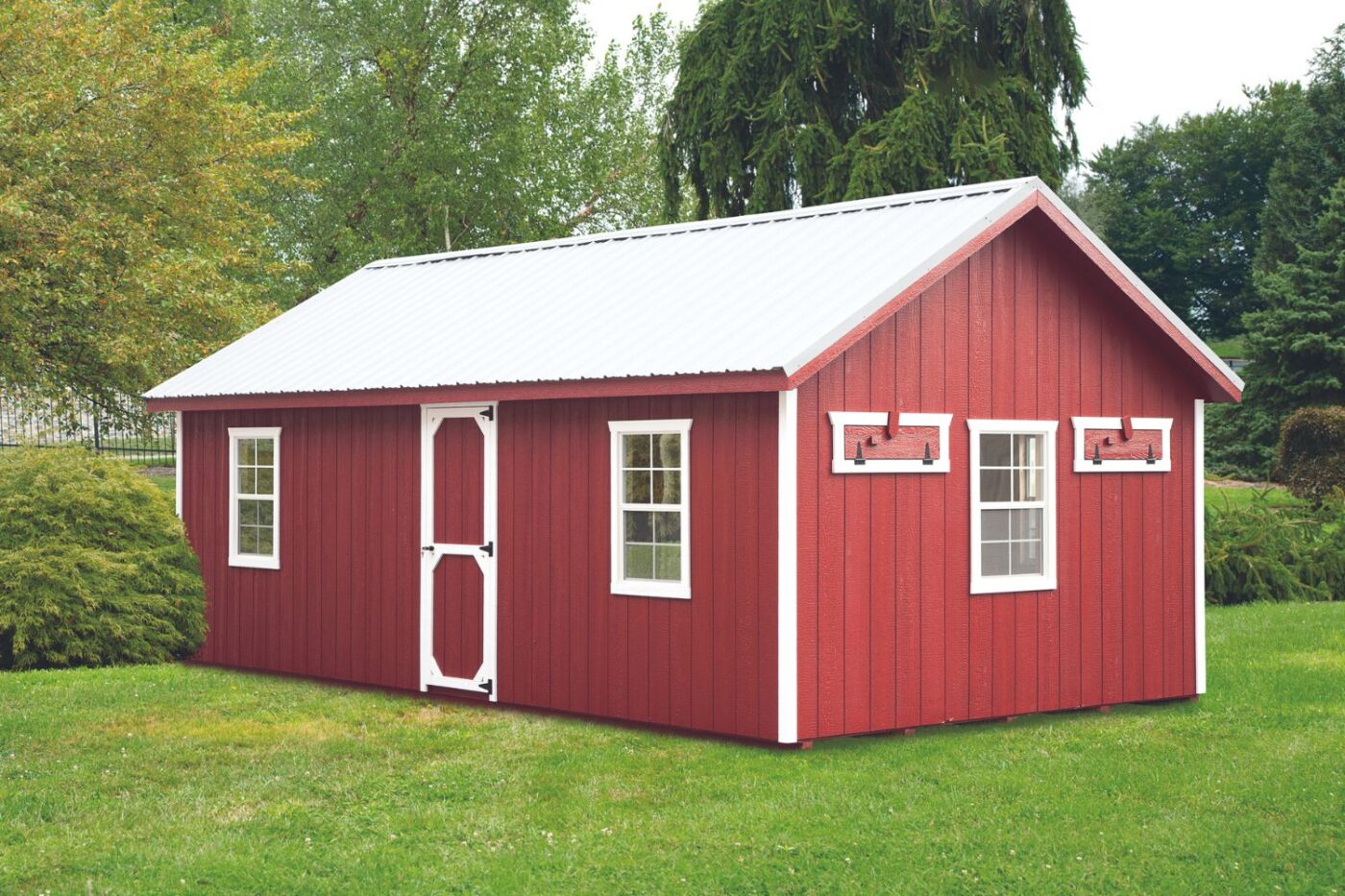
Keeping chickens in your backyard is really catching on, and it’s not hard to see why. Fresh eggs straight from your own hens are healthier and tastier, plus you get to make sure your feathered friends are treated well. It’s also a fantastic way to teach kids about taking care of animals and giving them some chores to do, like collecting eggs and feeding the chickens. If you’re thinking about starting your own backyard flock, you’ll need a good coop, and we’ve got just the thing for you. Check out our chicken coops in New Hampshire to find just what you need!
If you’re thinking about starting a backyard chicken flock in New Hampshire, we’ve got you covered. Our chicken coops are crafted in Lancaster, Pennsylvania, and distributed nationwide through a network of dealers, including one right here in New Hampshire!
To locate the nearest dealer to your area, just click the button below and enter your address. And don’t stress if you’re not close to one of our listed dealers! We’ll work with you directly to find the ideal coop for your flock. Find the perfect chicken coops in New Hampshire at The Hen House Collection!
No posts
Our Chicken Coops in New Hampshire
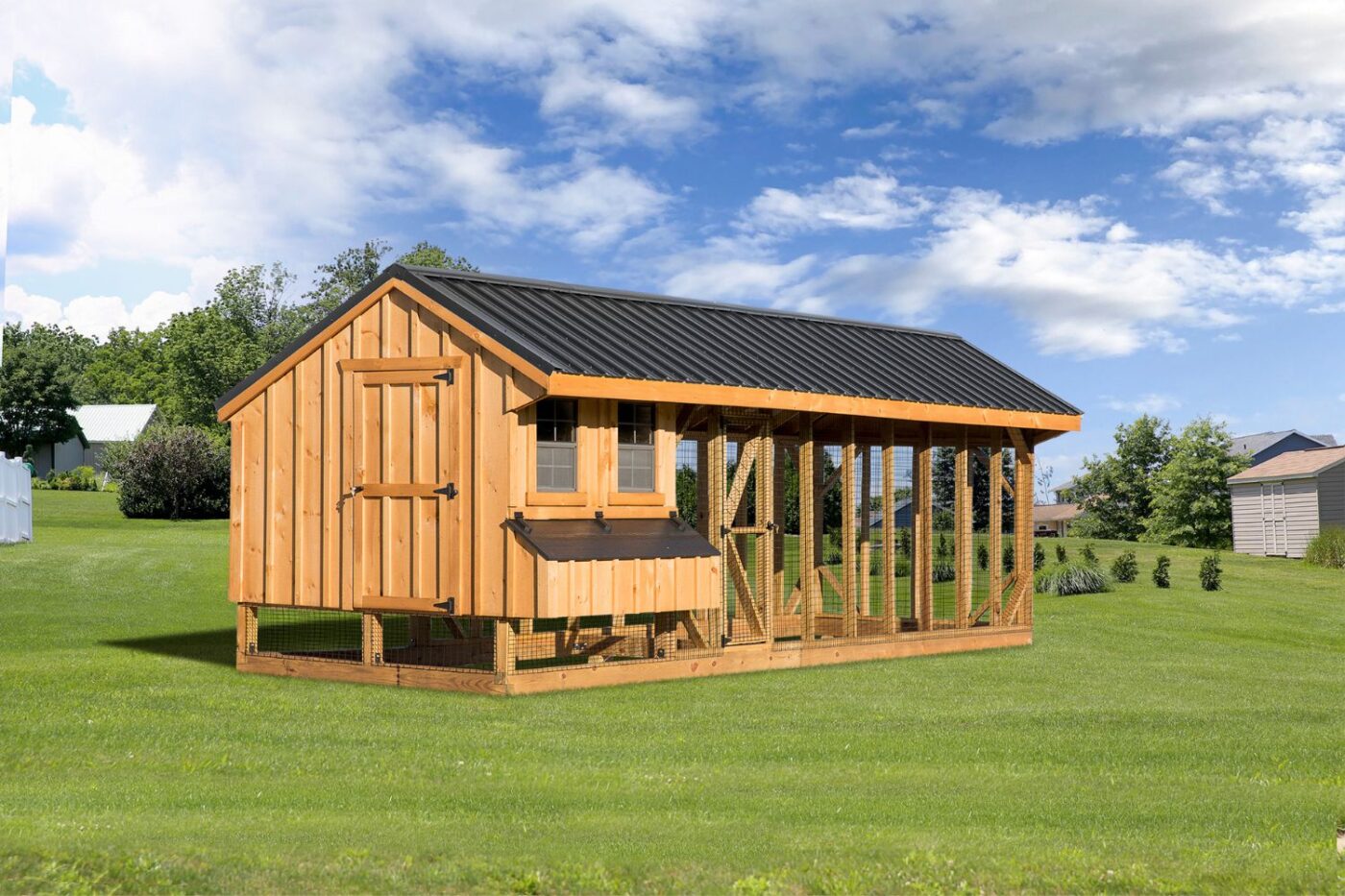
The Combination Chicken Coop
Lots of folks love the Combination chicken coops in New Hampshire because they come with an attached run. This means your chickens can move freely between the coop and the outdoor area, enjoying fresh air whenever they please.
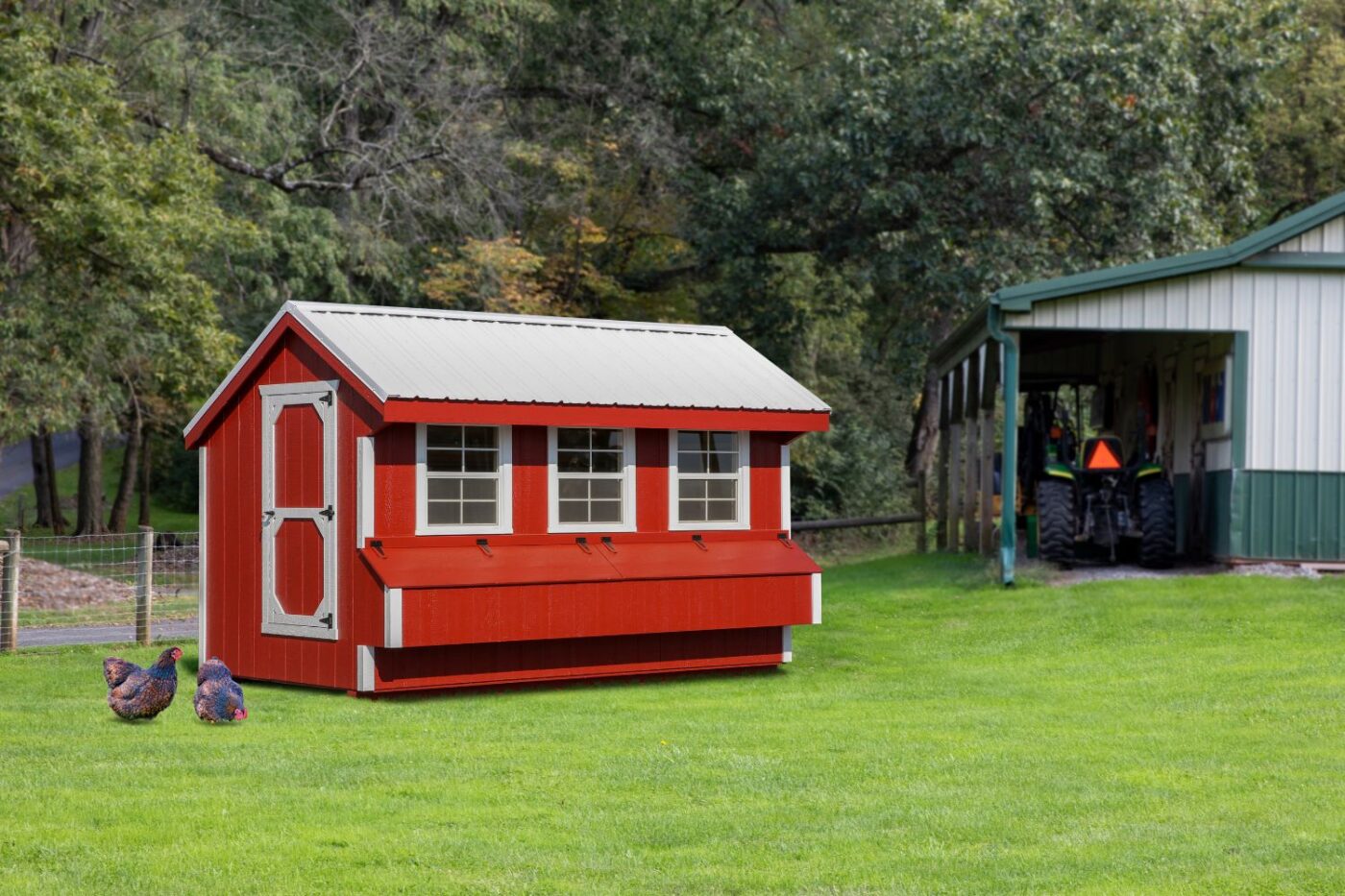
The Quaker Chicken Coop
Another fan favorite is the Quaker Coop, known for its roof overhang. This coop is totally customizable and comes packed with all the features you could want.
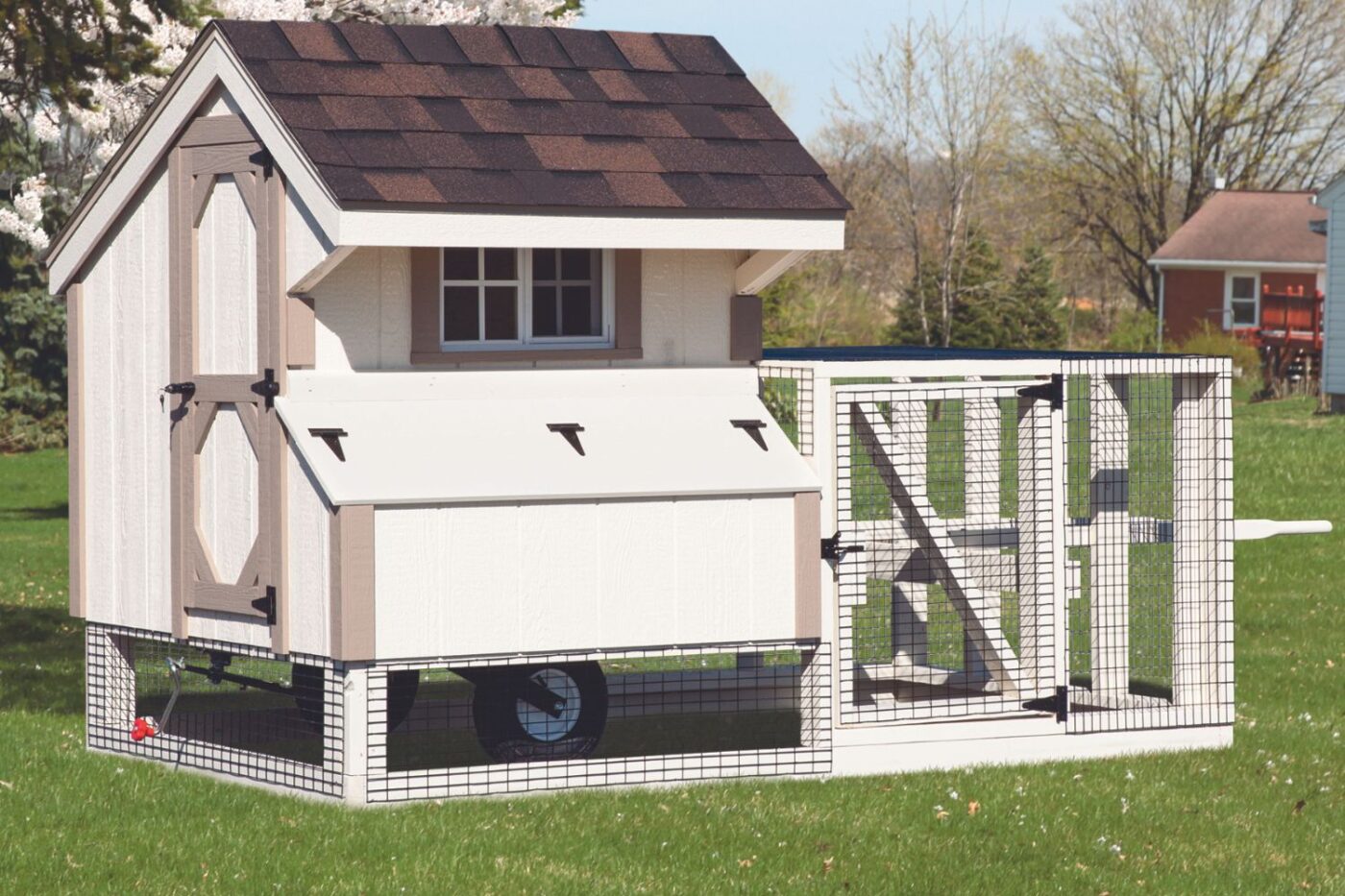
The Tractor Chicken Coop
If you need a coop that’s easy to relocate, take a look at our Tractor chicken coops in New Hampshire. It’s got wheels and a handle, making it a breeze to move around your yard. Perfect for smaller flocks!
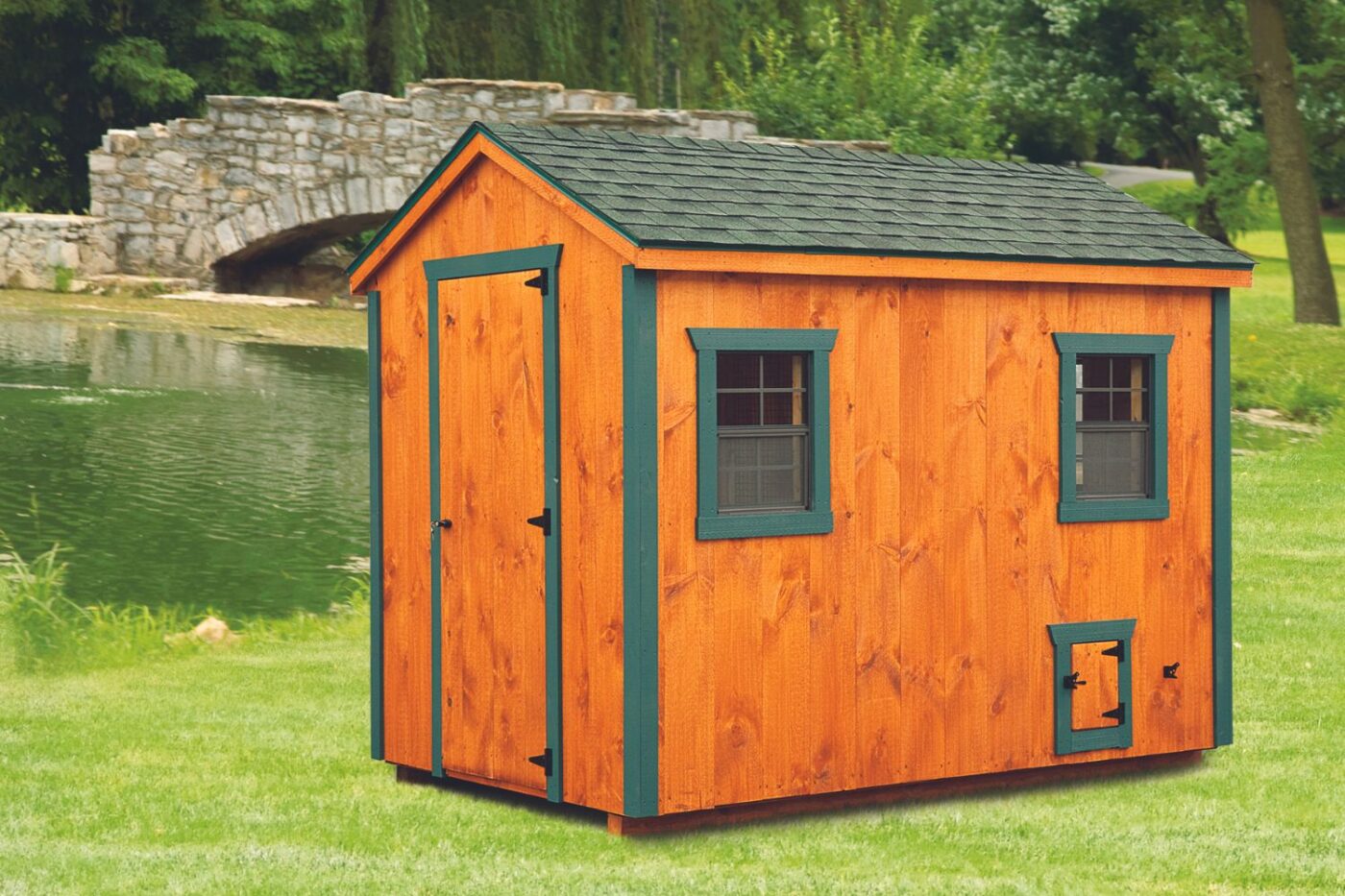
The A-Frame Chicken Coop
Our A-Frame coop is built tough with a sturdy frame and comes in various sizes. Plus, we’ve got an A-Frame option that can accommodate up to 100 chickens right in your backyard.
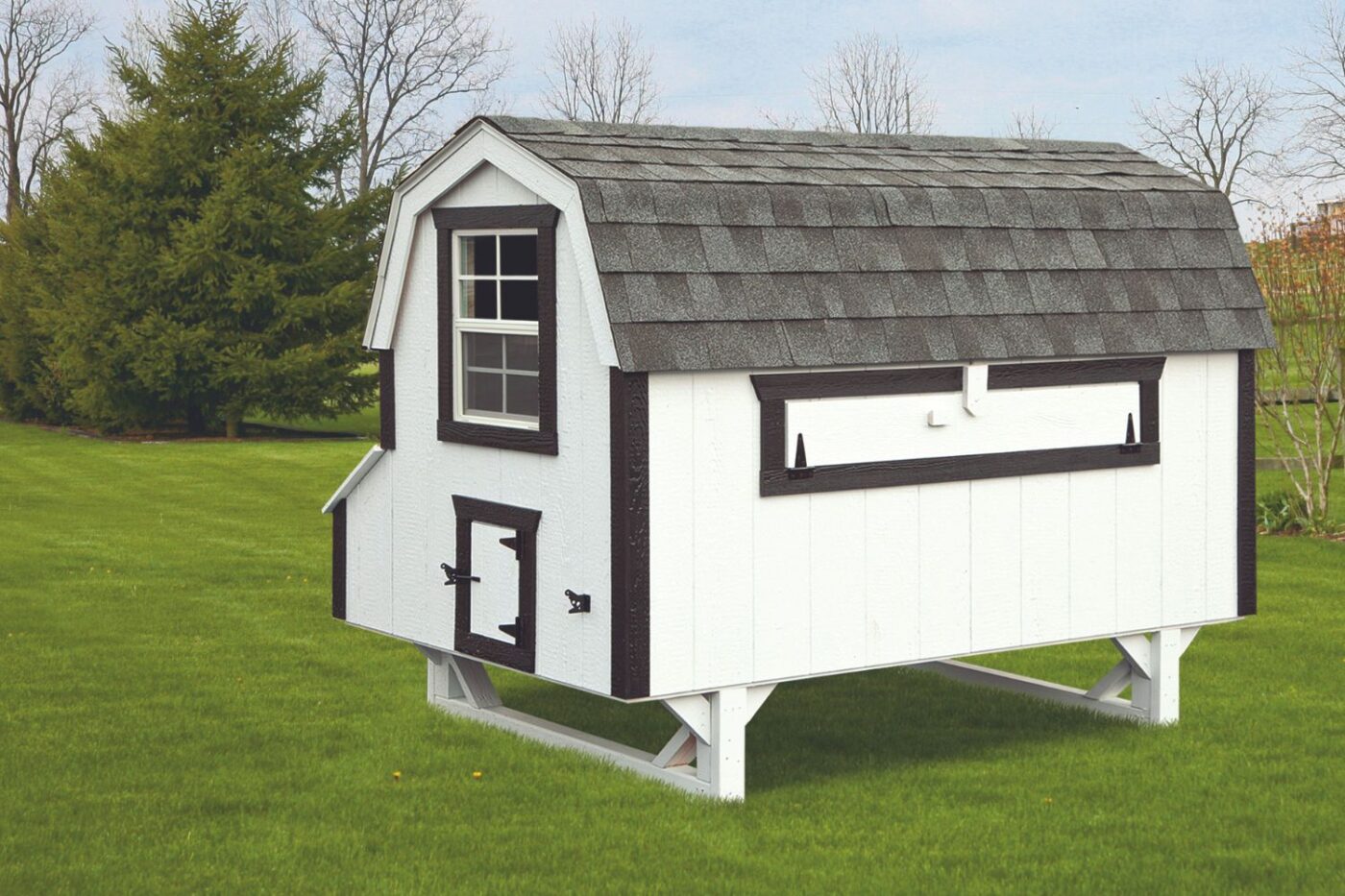
The Dutch Chicken Coop
If you’re a fan of the barn-style roof, you’ll love the Dutch chicken coops in New Hampshire. It’s designed to give your chickens plenty of headspace inside and comes with all the essential features you’d want in a coop.
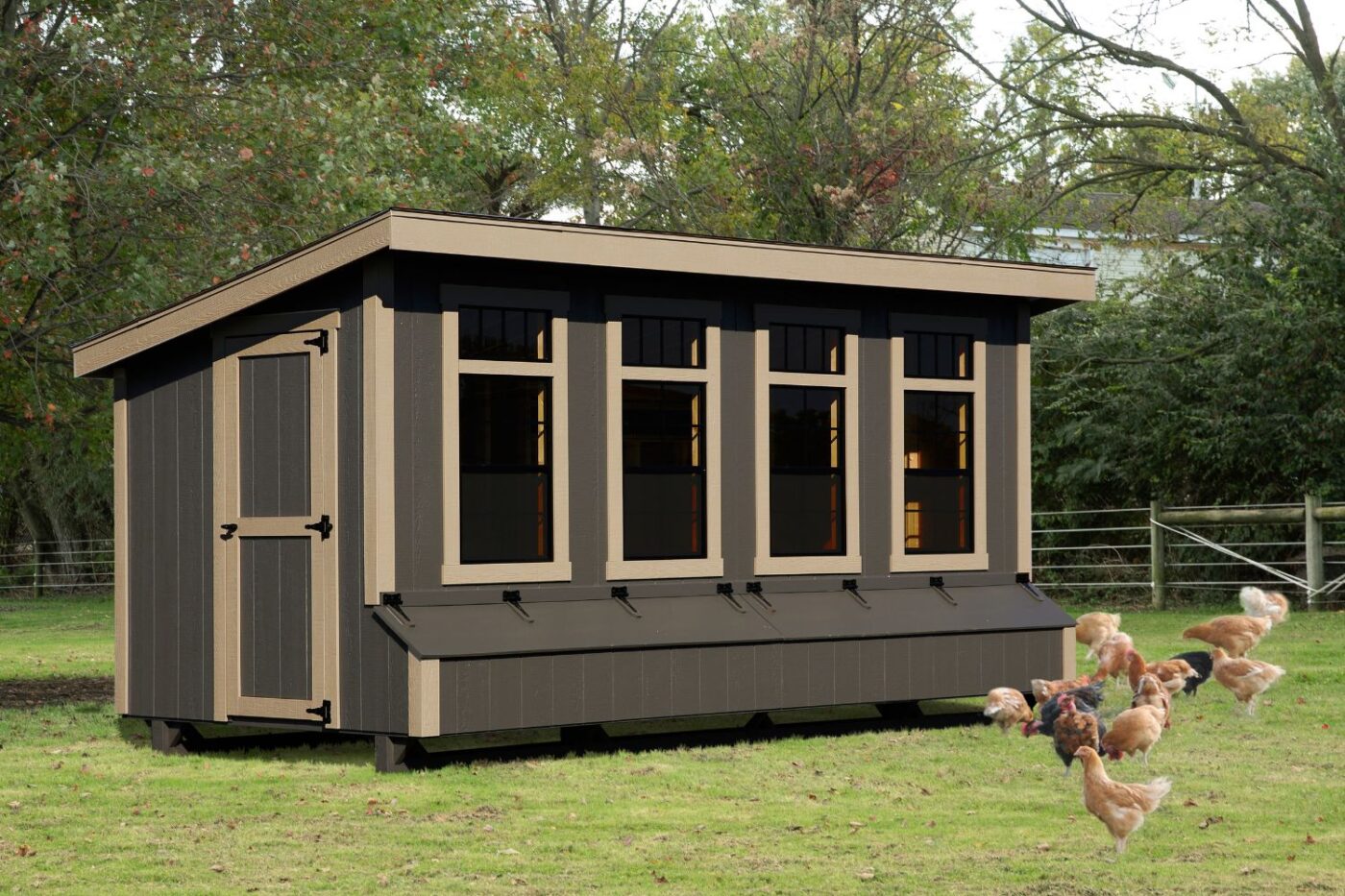
The Lean-to-Chicken Coop
Introducing our latest coop design: the Lean-to Coop. With its spacious windows for ample sunlight and ventilation, it’s a charming choice for your backyard flock. Plus, it fits snugly against a wall or fence, making it versatile for any space.
Chicken Coops by # of Chickens
Not sure what size chicken coop is right for your flock? No problem! Our chicken coops in New Hampshire are sorted by the number of chickens they can comfortably house, making it easy for you to find the perfect fit.
Whether you need space for 4, 15, 30, or even 100 chickens, we’ve got you covered with the size you need, and most likely, the style you want too.
Chicken Coops by Size
We’ve got you covered if you’ve got a specific size in mind for your coop. Whether you’re eyeing a 3×5 or a 6×6 chicken coop, we’ve got over 20 prefab options for chicken coops in New Hampshire!
From 3×4 to 12×24, we offer a wide range of sizes to suit your needs. Just browse through our selection of chicken coop sizes and pick the one that fits best for you.
Regulations for Chicken Coops in New Hampshire
There aren’t any statewide rules about keeping backyard chickens in New Hampshire. Your best bet is to look into the regulations set by your local city or county for more specific guidelines. Here are some common regulations you might need to follow if you have backyard chicken coops.
Zoning
Keeping backyard chickens is generally allowed in New Hampshire, but it’s important to be aware of any local zoning regulations that might apply. It’s a good idea to reach out to your local government to find out if there are any restrictions you need to know about.
Quantity of Chickens
The allowed number of chickens per property varies from town to town or city to city. For example, in Keene, you can have up to six hens with roosters only on lots of 5 acres or more, while in Concord, you’re allowed up to 5 hens and no rooster. It’s always a good idea to check the specific regulations in your area.
Health Regulations
It’s important to maintain the health of your chickens and ensure they are free from disease. Regular veterinary check-ups are advisable.
Coops and Runs
Make sure your coops and runs are predator-proof, well-ventilated, and regularly cleaned to prevent disease and pest issues. It’s important that they also provide adequate space for your chickens based on their numbers.
Chicken Coop Necessities
Ample Space
One of the biggest pitfalls for chicken farmers is overcrowding their coops. When there are too many chickens crammed into a small space, it leads to sanitation and ventilation issues, which can make the chickens more aggressive.
A good rule of thumb is to provide about 4 square feet of space per chicken. For example, if you have 15 chickens, you’d want a coop that’s around 6×10 feet, giving them a total of 60 square feet of space. With plenty of chicken coop options out there, finding one that fits your flock size should be a breeze.
Proper Ventilation
Making sure your hens have enough fresh air is key when setting up your new chicken coop. Chickens need good ventilation to stay healthy, so having windows in the coop and an open run area can really help with airflow. If ventilation isn’t adequate, it can lead to respiratory issues and some pretty funky smells inside the coop.
But while airflow is important, you also need to shield the coop from extreme weather, especially in places with harsh winters. Keeping your chickens safe from strong winds and heavy snow is crucial for their well-being when the weather gets rough.
Security and Protection
One mistake many chicken farmers make is building coops that aren’t strong and durable, especially in areas where predators roam. Creatures like raccoons, coyotes, foxes, bobcats, and even neighborhood dogs can easily break into a flimsy coop made of weak wire and lightweight wood. If you know there are chicken predators around, it’s best to steer clear of using chicken wire. Instead, go for solid doors with sturdy latches and make sure all windows are securely sealed.
Necessary Features
Every chicken coop should have certain features to keep your flock happy and healthy. Inside, it’s crucial to have roosts where chickens can perch at night and nesting boxes for your laying hens to lay eggs in private.
Don’t forget about feeding and watering solutions inside the coop, as well as bedding materials like wood shavings or sand for comfort and cleanliness.
And of course, your hens will need a designated outdoor area to roam and peck around in. You can incorporate many of these features into a DIY coop or find them included in pre-built coop designs.
Cities We Serve in New Hampshire
- Manchester
- Salem
- Keene
- Derry
- Hampton
- Londonderry
- Exeter
- Laconia

